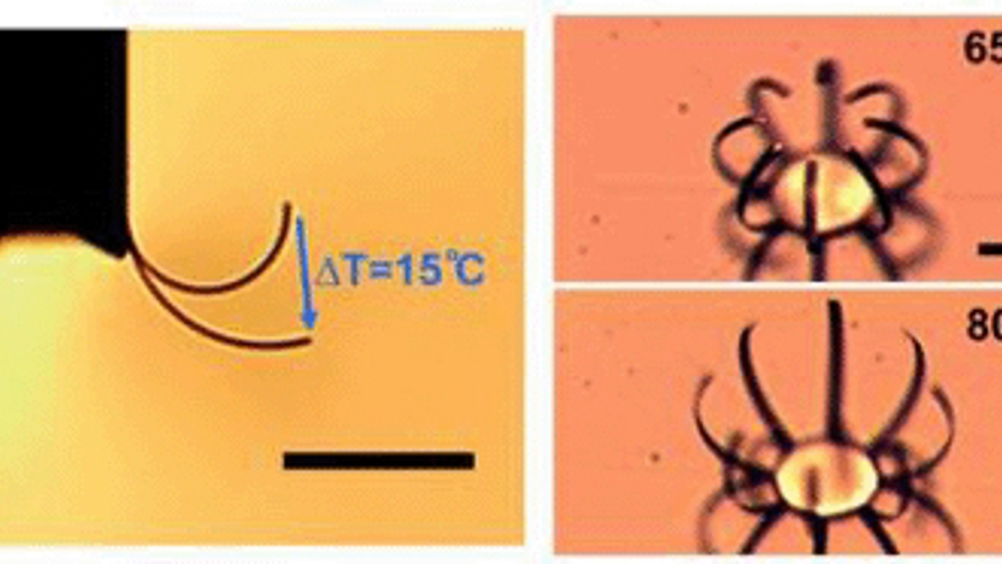Micro-actuator could find use in microfluidics and drug delivery
Researchers with the US Department of Energy’s Lawrence Berkeley National Laboratory (Berkeley Lab) and the University of California (UC) Berkeley have developed a micro-scale actuator claimed to flex like a finger.

Based on an oxide material that expands and contracts in response to a small temperature variation, the actuators are said to be smaller than the width of a human hair and are promising for microfluidics, drug delivery and artificial muscles.
‘We believe our micro-actuator is more efficient and powerful than any current micro-scale actuation technology, including human muscle cells,’ said Berkeley Lab and UC Berkeley scientist Junqiao Wu in a statement. ‘What’s more, it uses this very interesting material — vanadium dioxide — and tells us more about the fundamental materials science of phase transitions.’
Wu is corresponding author of a paper appearing in Nano Letters that reports these findings, titled Giant-Amplitude, High-Work Density Microactuators with Phase Transition Activated Nanolayer Bimorphs.
When heated past 67ºC, vanadium dioxide transforms from an insulator to a metal, accompanied by a structural phase transition that shrinks the material in one dimension while expanding in the other two. For many years, researchers have debated whether one of these phase transitions drives the other or if they are separate phenomena that coincidentally occur at the same temperature.
Register now to continue reading
Thanks for visiting The Engineer. You’ve now reached your monthly limit of news stories. Register for free to unlock unlimited access to all of our news coverage, as well as premium content including opinion, in-depth features and special reports.
Benefits of registering
-
In-depth insights and coverage of key emerging trends
-
Unrestricted access to special reports throughout the year
-
Daily technology news delivered straight to your inbox










Water Sector Talent Exodus Could Cripple The Sector
One possible reform to the Asset Management Plan (AMP) system would be to stagger the five year cycle across the ten or so water businesses, so that...